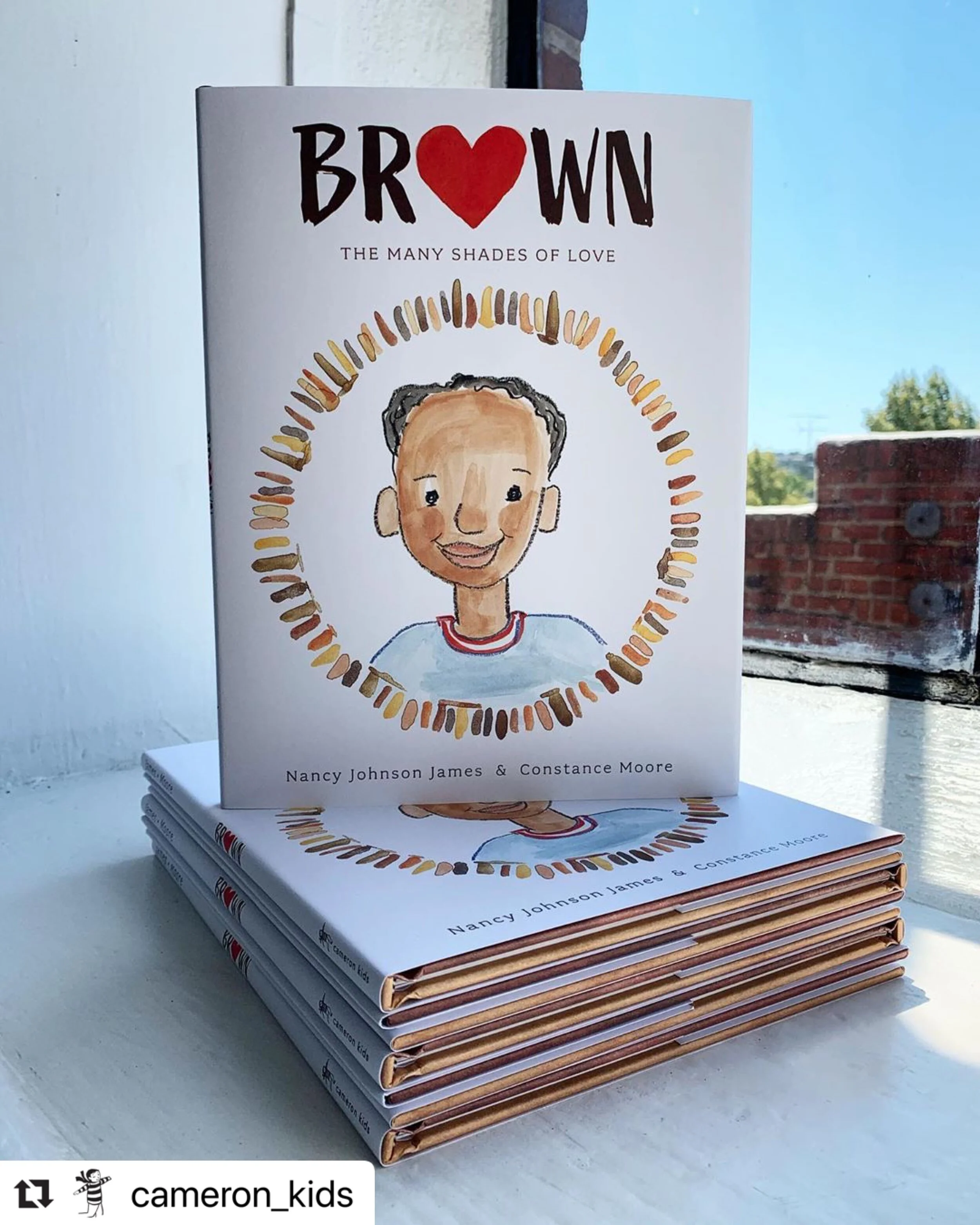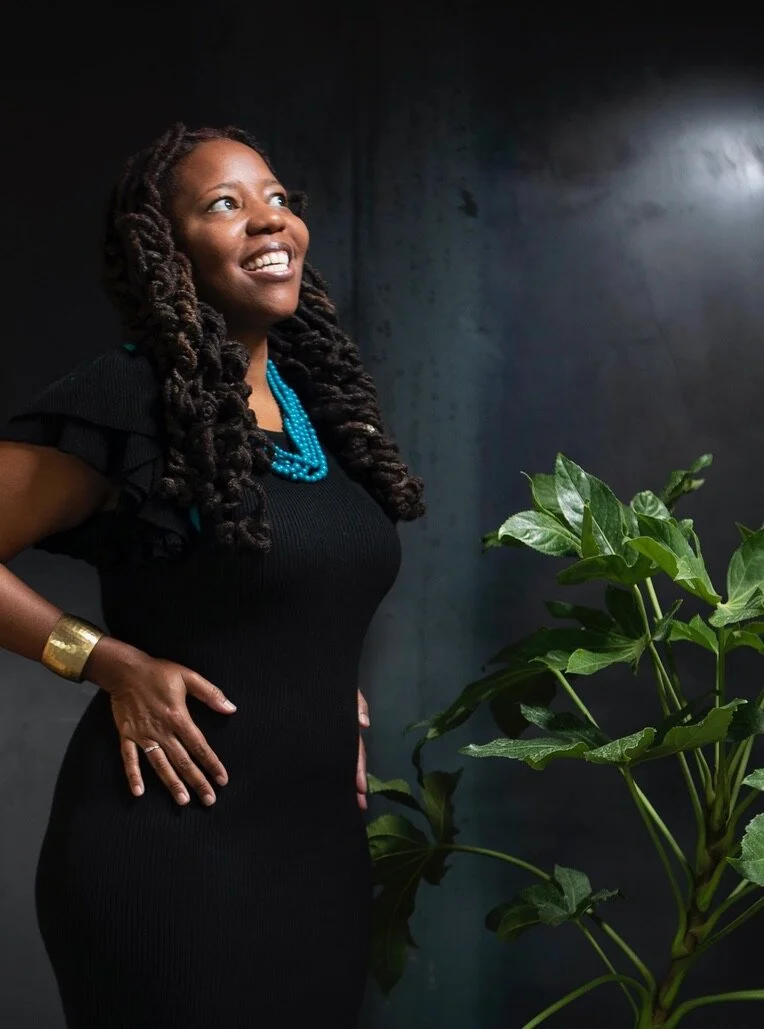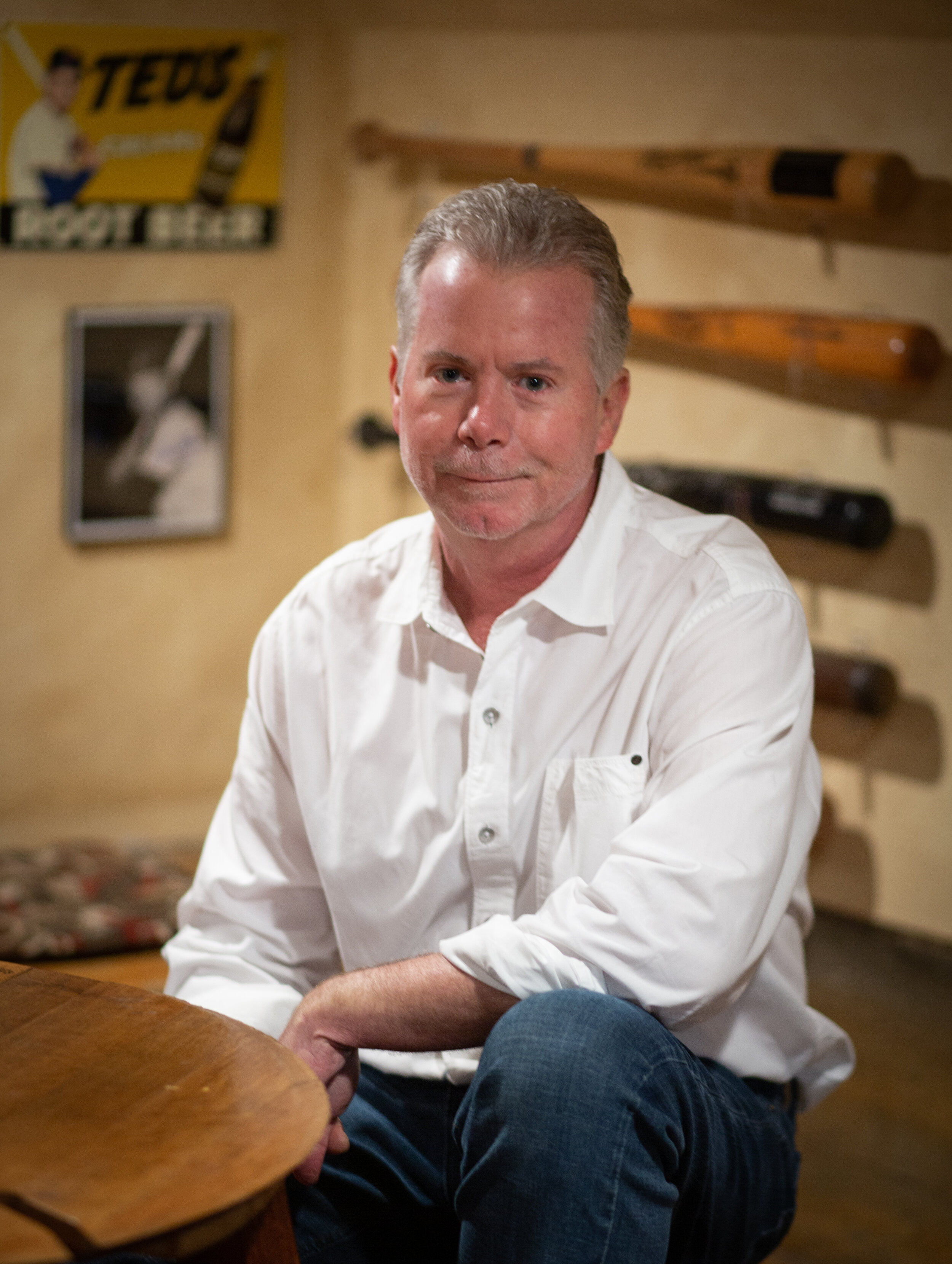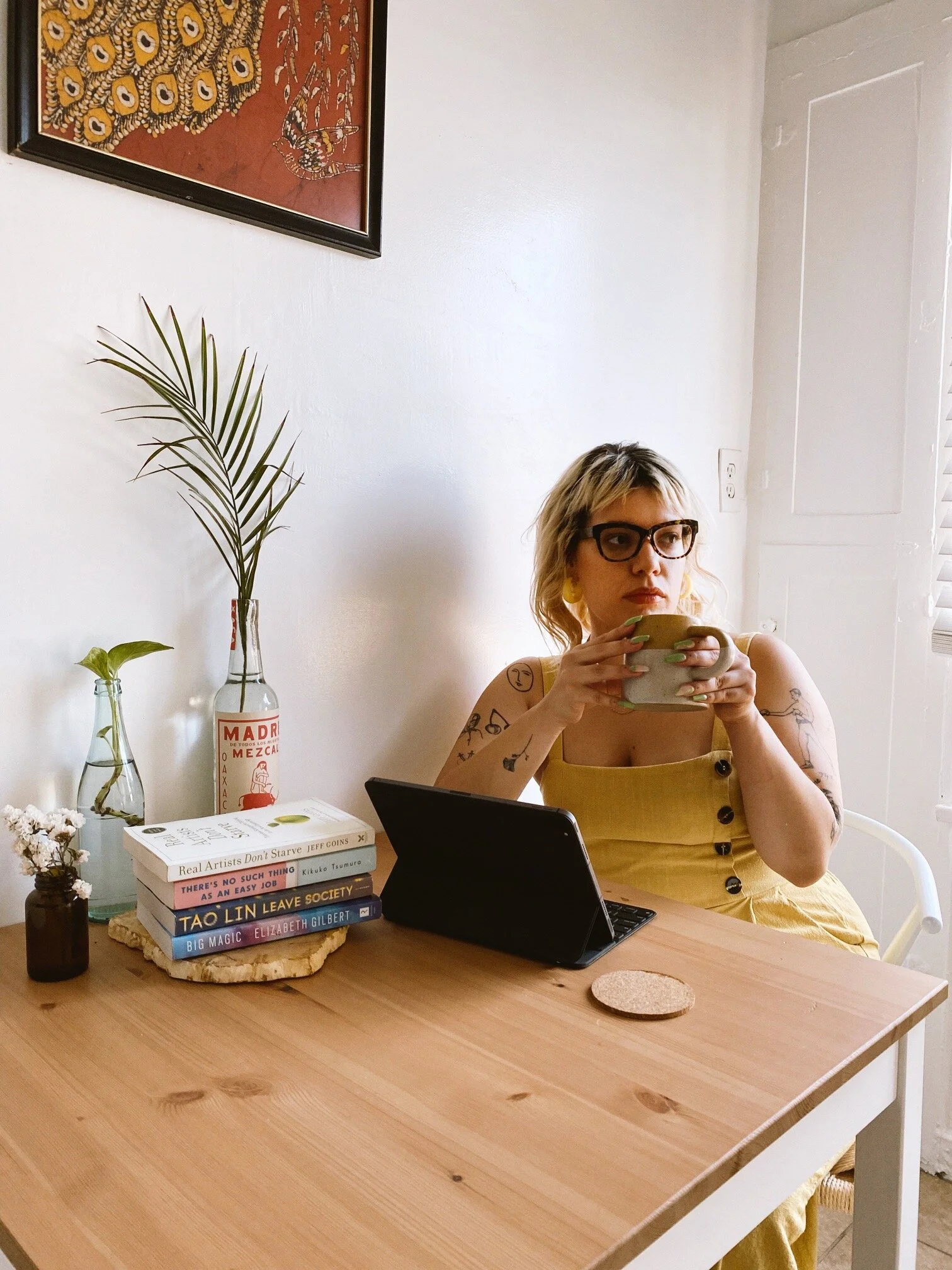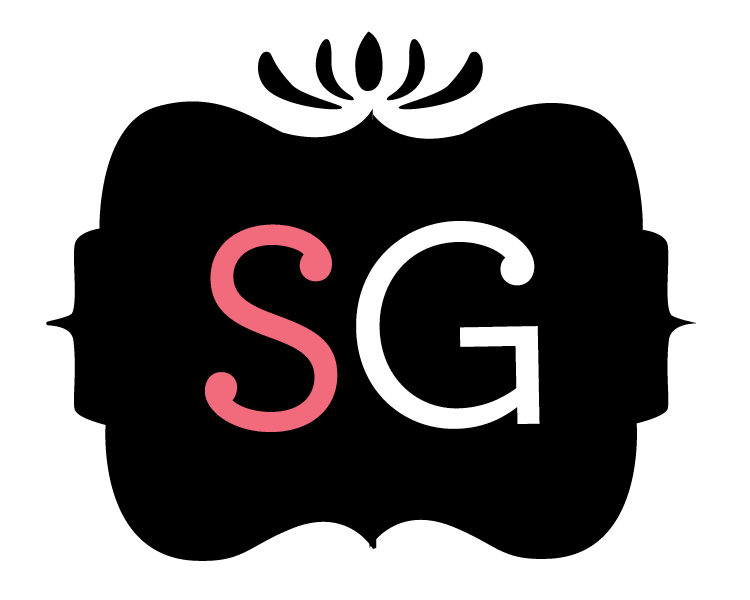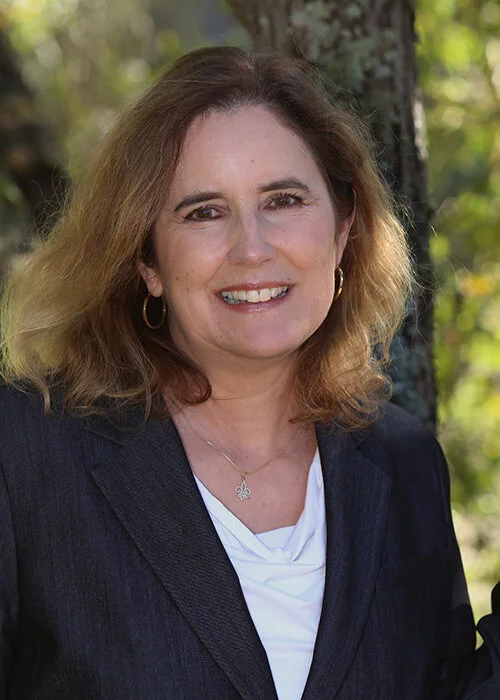Writing Looks Chaotic: Interview with Jessica L Folk
Jessica L. Folk’s forthcoming nonfiction in Sinister Wisdom, “A Recipe For Emotional Abuse” reads like a recipe:
Add a heaping teaspoon of uncertainty and hold the self-esteem.
Where you’re going, you won’t need any. Don’t date.
Don’t explore. Ignore the way you feel when you look at the girls around you. Remind yourself that locker rooms aren’t for staring. Add one blindfold and a summer getaway at Christian sleep-away camp. Give your life to Jesus - it will help, they say.
Stir well.
And despite the agitated mood in this writing, reading it feels light, like I may have flour on my hands but it’s okay to brush it onto my apron.
“It’s the most raw and real I’ve ever been in my writing and it came from a place of deep pain,” she says of the piece. “I’ve written a lot about the subjects I discuss in, ‘A Recipe for Emotional Abuse’, but this is the first time I’ve had a piece published about those experiences collectively – or at least, it’s the first time where I’ve presented them as my own. This is a reflection of how I dared to throw it all together and say, ‘Hey, you know what? This is a part of me and that’s okay.’”
I’m pleased to share my interview with this assistant professor in Kentucky who has published poetry and nonfiction in the Ghost City Review from Ghost City Press and the Fear and Courage collection from Exisle Publishing. She was the screenwriter for the short film “Five” and the tv pilot script, ‘Til Death, which received an honorable mention from UFVA in 2019.
What are you writing now?
I’m currently working on a Young Adult novel project which adapts Alice’s Adventures in Wonderland and combines it with New Orleans Voodoo in the present day. My protagonist, a queer multiracial teen from Brooklyn, is sent to live with her aunt in New Orleans after a terrible loss. There, she finds out that she’s far more powerful than she ever dreamed. And maybe, just maybe, she can bring her mother back from the dead.
What do writing and sex have in common?
It all starts with a feeling. A spark of an idea. A look across the room. A deep need in your soul. It’s all the same really, it’s just a matter of whether I put it onto the page or into another person.
They’re both messy and complicated and sometimes really painful. I mean, the feelings accompanying sexual relationships can be painful. If the act of sex itself is painful for you, please stop, talk to your partner about changing it up, or consult a physician, if necessary. Sex can be many things, but physically painful should not be one of those things. You know, unless that’s your thing. ;)
Sometimes it’s just about reveling in it – about being in the moment with yourself or with your partner(s) and just feeling. There’s so much freedom in that.
Tell me a story.
When I was in elementary school, (for the record, I say “elementary” like Sherlock Holmes would and it has yielded much teasing from people who did not grow up where I did,) I used to actively choose to spend my recess time not on the playground or playing tag in the soccer field. Instead, I would spend my recess writing stories.
I would hole up on one of the clunky desktop computers, if a teacher would let me, after I begged to avoid the dreaded physical activity going on outside. Or sometimes I would take a notebook or journal out to the playground and perch on a swing or on the wooden border surrounding the playground equipment and put pen to paper.
I loved creating tales of people who did not exist, who I wished I could meet and be part of their lives. It was a sort of escapism for me. Life seems pretty difficult at that age when you’re chubby, queer, and dealing with the fallout of divorce. Writing was a means of telling stories of people who were dealing with dramas that were not my own and characters who walked through lives I hoped to experience some day. Writing meant I could be someone else for a moment. At the time, I don’t think I knew that I was doing it to escape, but hindsight is always 20/20, as they say.
What’s your writing process like?
Growing up, I loved the 1994 film version of Little Women. I wanted to be Jo March. I also had an enormous crush on her. Was Winona Ryder part of my sexual awakening? Absolutely.
Because of Little Women (1994), I believed that real writers wrote in their pajamas, by candlelight, late into the night, with a quill and ink on paper. This film was likely the start of my obsession with outdated writing techniques. I longed for ink-stained fingers – a sign of a true writer, I thought. I still sometimes use a fountain pen when I write by hand. I own a questionably functional electric typewriter that I found at a thrift store for ten bucks. I drool every time I walk into a shop selling fancy bound journals or notebooks. I am a walking cliché, but I don’t care.
I love to experience the physical joy and exhaustion of the act of writing. There is something so romantic about sitting in the dark with a dim light to guide you, next to a cup of hot tea, as you put pen to paper. I still write some of my projects this way. Although I have to say that I’ve lost the dark setting and the candlelight, in most cases. Instead, I write wherever I am, whenever something strikes me. My favorite means of writing is to sit down somewhere outside with a blank journal, a pen, and my thoughts. Sometimes I add music and I just write.
I’ll usually start a project with an image I can’t get out of my head. Or a sentence. Or a feeling. Or a scene – and it flows from there. Then I take a step back and I force myself to do the thing that many of my creative writing students hate: I plan.
The seeds of an idea are often accompanied by that wonderful feeling of inspiration, but inspiration is fleeting and fickle. Once I know what I want a story to be, I have to outline it and figure out how it can grow to be the thing I see in my head. Sometimes this means dropping an idea entirely or transforming it into something else. An idea I see as a novel in my head, might instead be a screenplay or a short story. I dabble in most mediums, so I often find myself switching out between them. My upcoming piece in Sinister Wisdom was originally a poem and now it’s more of a found form nonfiction piece.
As much as I long to be Jo March toiling away in her attic with her pages stacked neatly, stained with ink, I know that writing doesn’t look quite like that for me. Writing looks messy. It looks like notes scribbled on loose envelopes, extra fast food napkins, in my phone, or whatever else is handy. Writing looks chaotic. It looks like me.
###
I coax sexy writers like Jessica L. Folk to reveal their creative secrets and processes in writer interviews to inspire you:
Read “A Recipe for Emotional Abuse” and my essay, “Finding Roost” in Lesbians In the City, the summer issue of Sinister Wisdom.
Attend the July 6 Lesbians In the City launch event on zoom to hear me read my work live along with other spectacular writers from SInister Wisdom.
Explore Jessica’s diverse body of work on her iMDb page and at Ghost City Review, Ghost City Press, and Exile Publishing.
Follow Jessica on Twitter and GoodReads.
Feeling inspired? Book a private session with me, The Sexy Grammarian. You always leave private sessions with homework and inspiration, and the first session is always free.

